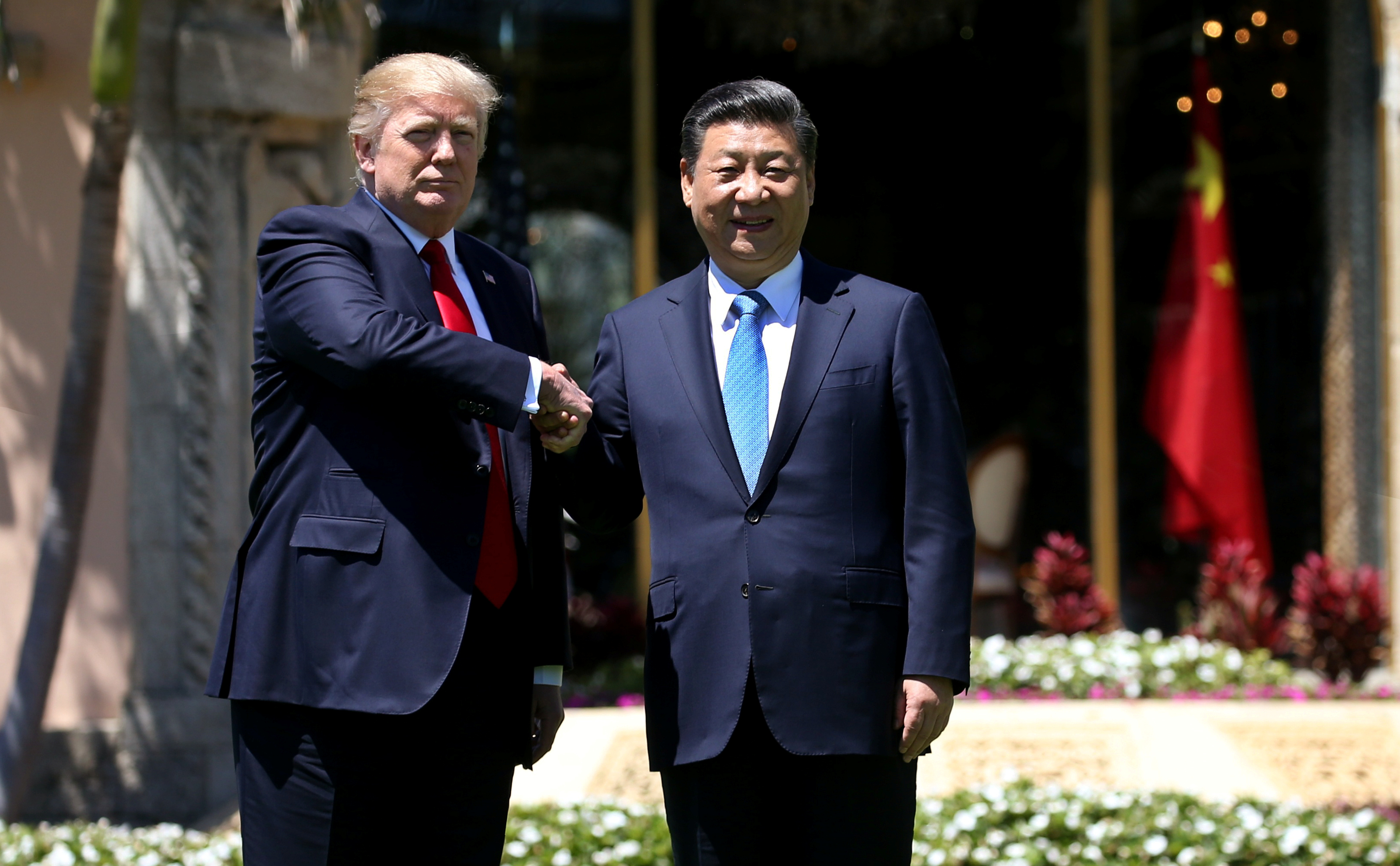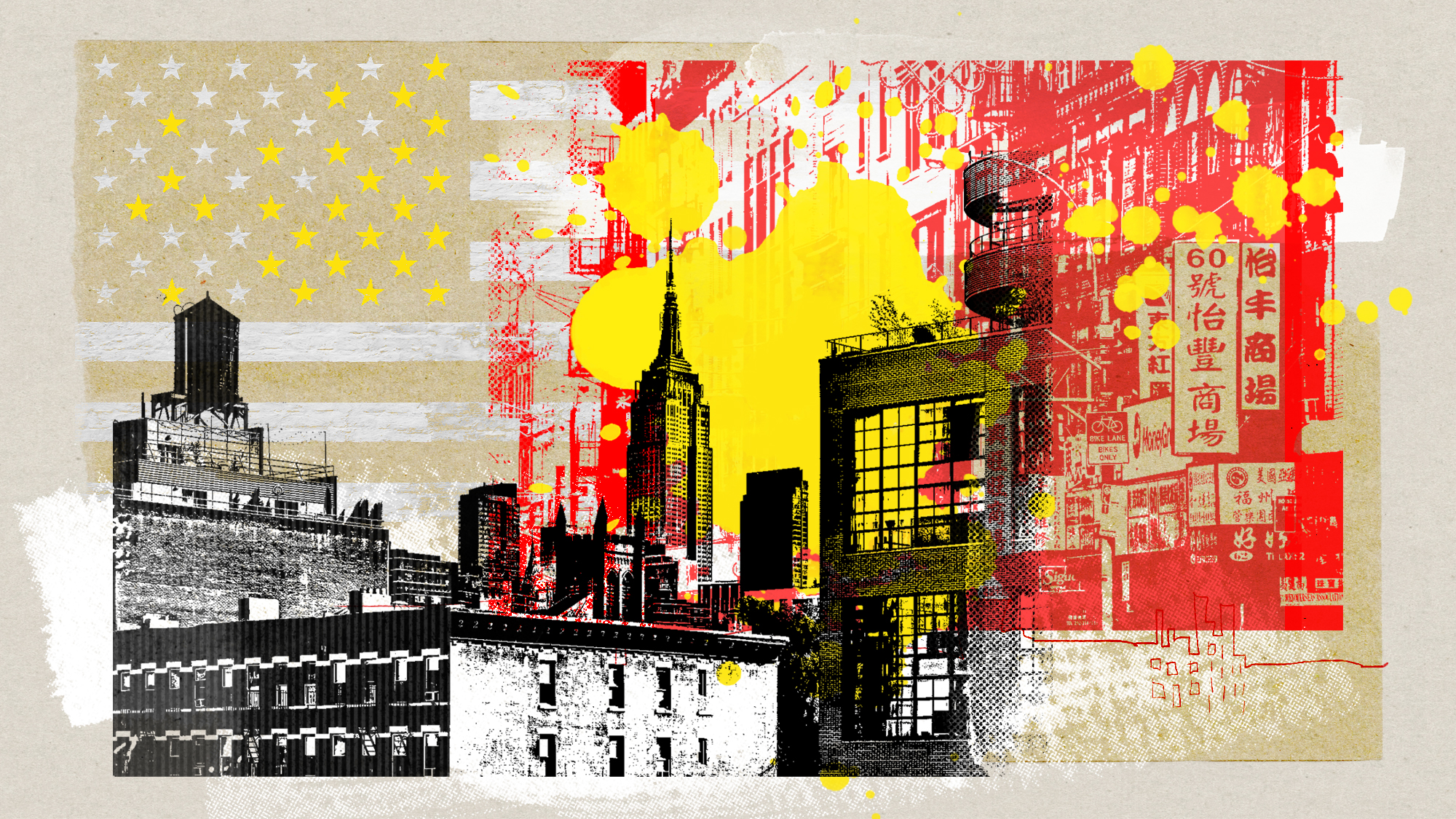China's president is playing Donald Trump like a fiddle
China knows it can't fix the North Korea problem, but it will certainly fake it for a better trade deal


President Trump thinks he has worked out a magnificent "deal" with China. The outlines of the deal are fairly simple to understand: Trump is prepared to drop his economic grievances against China in exchange for China's help in fixing "the North Korea problem."
Trump is being played like a fiddle by Chinese President Xi Jinping.
North Korea has been taking an increasingly aggressive posture towards the West; in particular, it is developing intercontinental ballistic missiles which, for the first time, would give it the ability to strike the United States, not just South Korea and Japan.
The Week
Escape your echo chamber. Get the facts behind the news, plus analysis from multiple perspectives.

Sign up for The Week's Free Newsletters
From our morning news briefing to a weekly Good News Newsletter, get the best of The Week delivered directly to your inbox.
From our morning news briefing to a weekly Good News Newsletter, get the best of The Week delivered directly to your inbox.
While Trump used tough protectionist rhetoric in his campaign, many of his advisers are what Trump supporters would call "globalists," particularly his chief economic adviser and former Goldman Sachs COO, Gary Cohn. Trump almost certainly doesn't want a trade war with China, and his protestations to the contrary are probably part of his favorite negotiating tactic, which is to start with a gigantic ask that can then be bargained down. (Many people think this is how negotiation works; in most business schools, the first thing they teach you in the first negotiation class is that it's a terrible tactic, because the other side can see through it 99 percent of the time and it just makes you look silly. But hey, maybe it works in real estate.)
Trump's offer to China is Bad Deal 101. Why? Because he is giving away something in exchange for nothing.
Let's start with the "nothing" part. One of the most clichéd lines about North Korea is that the way to convince North Korea to do something is to make China do the convincing, because China is the only country with real leverage over North Korea. This is parroted by every non-North Korea specialist talking head, and has been said by every presidential candidate of both parties for at least 10 years. It's one of those things that makes you sound clever and in-the-know.
But it happens to not be true. China is in exactly the same situation vis-à-vis North Korea as the rest of the West: North Korea blackmails China with a collapse that it would hate in order to extract concessions. Indeed, a collapse of North Korea would lead to tens of millions of starved, foreign refugees rushing over the border, destabilizing the country's already fragile economy. When it comes to North Korea, China is like everyone else: desperate for it not to collapse and willing to do anything, even the unconscionable, to prevent it. In theory, China could cut off aid to North Korea, but it won't, for the same reason that South Korea won't. This is the horrid genius of North Korea's kamikaze brinkmanship.
A free daily email with the biggest news stories of the day – and the best features from TheWeek.com
China's leaders were already livid at Kim Jong Il's late-in-life nuclear brinkmanship and tried to get him to stop it. Did that work? No. China's leaders tried to get Kim Jong Un to chill out when he took the nuclear gamesmanship to 11 when he succeeded his father. How did the young tyrant respond? By taking his number two, Jang Song Thaek, reputed to be "China's man in Pyongyang," and having him executed, along with all of his family.
But yeah, China will take care of North Korea. Sure.
Meanwhile, on the economic policy front, Trump has decided to drop one of the few good ideas of his campaign: renegotiating our trade deal with China so it's better for the U.S. While a full-blown China-U.S. trade war would be a bad idea, when it comes to trade, China has been — ah, how does one put it politely? — screwing over the West. China benefits from open terms of trade with the rest of the world while its economy is extremely protectionist. Yes, it is a currency manipulator. Controls on foreign investment in China are quite tight. China's state-controlled banks subsidize exports through under-priced loans. Intellectual property theft of U.S. companies is utterly rampant, a phenomenon which the government, at best, chooses to ignore, and at worst, actively aids and abets.
Whatever the merits of the case for "free trade" in the abstract, the relationship that exists between China and the West bears no relationship to actual free trade. Renegotiating this partnership on more equitable terms was one of the best ideas of Trump's campaign, and one that showed real promise. It's also an idea that, for obvious reasons, terrifies the Chinese leadership. Good for them, then, that they got Trump to drop it in exchange for something that's never going to happen.
When announcing his presidential bid, Trump said of our leaders' stance towards China: "How stupid are our leaders? How stupid are these politicians to allow this to happen? How stupid are they?" I couldn't agree more.
Pascal-Emmanuel Gobry is a writer and fellow at the Ethics and Public Policy Center. His writing has appeared at Forbes, The Atlantic, First Things, Commentary Magazine, The Daily Beast, The Federalist, Quartz, and other places. He lives in Paris with his beloved wife and daughter.
-
 Boat strike footage rattles some lawmakers
Boat strike footage rattles some lawmakersSpeed Read ‘Disturbing’ footage of the Sept. 2 attack on an alleged drug-trafficking boat also shows the second strike that killed two survivors who were clinging to the wreckage
-
 Elizabeth Gilbert chooses books about women overcoming difficulty
Elizabeth Gilbert chooses books about women overcoming difficultyThe Week Recommends The bestselling author shares works by Tove Jansson, Lauren Groff and Rayya Elias
-
 Turner & Constable: Rivals & Originals – a ‘thrilling’ exhibition
Turner & Constable: Rivals & Originals – a ‘thrilling’ exhibitionThe Week Recommends Celebration of two of the UK’s ‘greatest landscape painters’ at Tate Britain is a truly ‘absorbing’ experience
-
 Femicide: Italy’s newest crime
Femicide: Italy’s newest crimeThe Explainer Landmark law to criminalise murder of a woman as an ‘act of hatred’ or ‘subjugation’ but critics say Italy is still deeply patriarchal
-
 Brazil’s Bolsonaro behind bars after appeals run out
Brazil’s Bolsonaro behind bars after appeals run outSpeed Read He will serve 27 years in prison
-
 Americans traveling abroad face renewed criticism in the Trump era
Americans traveling abroad face renewed criticism in the Trump eraThe Explainer Some of Trump’s behavior has Americans being questioned
-
 Nigeria confused by Trump invasion threat
Nigeria confused by Trump invasion threatSpeed Read Trump has claimed the country is persecuting Christians
-
 Sanae Takaichi: Japan’s Iron Lady set to be the country’s first woman prime minister
Sanae Takaichi: Japan’s Iron Lady set to be the country’s first woman prime ministerIn the Spotlight Takaichi is a member of Japan’s conservative, nationalist Liberal Democratic Party
-
 Russia is ‘helping China’ prepare for an invasion of Taiwan
Russia is ‘helping China’ prepare for an invasion of TaiwanIn the Spotlight Russia is reportedly allowing China access to military training
-
 Interpol arrests hundreds in Africa-wide sextortion crackdown
Interpol arrests hundreds in Africa-wide sextortion crackdownIN THE SPOTLIGHT A series of stings disrupts major cybercrime operations as law enforcement estimates millions in losses from schemes designed to prey on lonely users
-
 China is silently expanding its influence in American cities
China is silently expanding its influence in American citiesUnder the Radar New York City and San Francisco, among others, have reportedly been targeted
